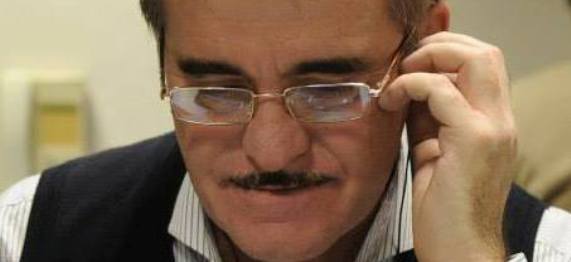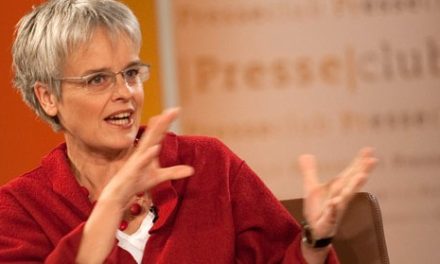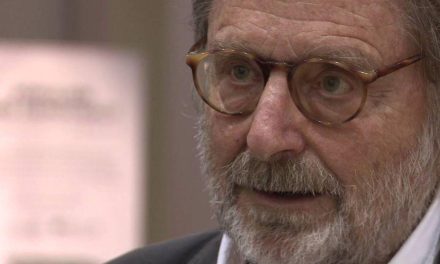Spokesperson of the Bulgarian Presidency of the Council of the EU Veselin Jelev is a Bulgarian journalist with a remarkable international career. A long-serving journalist accredited to the European institutions, he has worked with media such as AP and DPA, and his last job was with ClubZ magazine and website. Veselin Jelev spoke with Greek News Agenda* about Bulgaria’s future in the EU, the main messages of the Bulgarian Presidency (consensus, cohesion and competitiveness), the European perspective of Western Balkans, Bulgarian Presidency’s emphasis on connectivity in all its aspects – transport, energy, digital, educational and concludes that “The EU project will not be completed while we have countries in the heart of Europe waiting at its doorstep” adding that “the prosperity and stability of the EU is directly linked to the stability and prosperity of its neighbours, including the Western Balkans”.
Bulgaria is holding the presidency of the Council of the EU for the first time since it joined the EU, 10 years ago. How has the country changed within these years and how you imagine Bulgaria’s future in the EU?
Bulgaria enjoys political stability and the highest approval and trust rates towards the EU. Bulgaria’s economy has grown significantly over the last ten years, and continues to grow while the country has stable finances.
Bulgaria joined the EU on 1 January 2007, that is on the eve of the global financial and economic crisis. Today, the country enjoys a 4-per cent annual economic growth, the fourth highest in the Union, compared to 2.3-per cent EU average. Its government budget is balanced (0 percent deficit), compared to a 1.1 percent of GDP average for the EU, and its national debt equals 26.8 per cent of GDP, the third lowest in the EU, compared to a 89.3 percent EU-average.
Bulgaria’s inflation is stable at 1.3 percent (1.7 percent EU average) and unemployment is 6.4 percent of the workforce (7,8 per cent EU average).
The fastest growing economic sector is the ICT. Its total revenues reached 1.2 billion euros in 2016, which reflects a 600-per cent growth rate and a 300-per cent increase of jobs over the past decade. The sector is projected to account for 4.5 per cent of the GDP in 2021. More than 90 per cent of all jobs in the Bulgarian ICT sector are occupied by people under 35 years of age. These are highly skilled young professionals, whose average wage is four times the national average, and 31 per cent of them are women, which is the highest rate in the EU.
EU structural Funds have contributed significantly to the growth in Bulgaria. Bulgaria’s absorption rate over the 2007-2013 programming period was 95 per cent. Their contribution to the GDP was an 11.5 per cent increase over the period.
In the last four years, 35,000 Bulgarians living abroad have returned to Bulgaria, and net emigration has fallen to 4,017 per year on average.
Bulgaria sees its future as a member of a strong, digital and united European Union, which moves forward together and not at different speeds. The three main messages of the Bulgarian Presidency are: consensus, cohesion and competitiveness. Bulgaria’s next goals are to join the euro entry mechanism of ERM II and the Schengen area.
Our country wants to play a constructive and stabilising role in the Balkansand has made the European perspective and the connectivity of the Western Balkans a key priority of its presidency.
The European perspective of Western Balkans is among the top priorities of the Bulgarian EU Presidency, also portrayed as a Balkan Presidency. What are your expectations concerning this perspective? Do you think that the EU-Western Balkans Summit taking place next May in Sofia could revive EU’s interest for the region?
We are convinced that the prosperity and stability of the EU is directly linked to the stability and prosperity of its neighbours, including the Western Balkans. The best guarantee for these countries to live in peace and democracy and to prosper economically is the prospect to join the EU when they are ready.
Bulgaria does not want to create false expectations. The EU enlargement remains a rules-based process including strict conditionality. We want to encourage and support reforms that will bring the countries in the region closer to the EU. That is why we find it important to send a strong message to the Western Balkan countries that the EU remains committed, that its door will be open for those of them who do their homework. Otherwise we risk that we lose the pro-EU political momentum in the region.
In May, Sofia will host a EU-Western Balkan summit. It will be the place to pass the above message. We hope to have it clearly spelled out in a declaration and to have a specific plan for each of the countries concerned by the date of the summit.
Bulgaria also wants ordinary Western Balkan citizens to feel and see the advantages of EU integration in their everyday lives. That is why we are putting an emphasis on connectivity in all its aspects – transport, energy, digital, educational. We are particularly keen on reducing current roaming charges between the EU and the countries of the region.
We are happy that this priority of the Bulgarian Presidency has found unequivocal support both among the EU institutions and among the Member States, which is a sign the EU interest in the Western Balkans is already reviving. Moreover, we have coordinated closely with the upcoming Presidencies, so they will take this priority forward and ensure continuity and commitment to the process.
Bulgaria and Greece along with Romania, Croatia, Serbia and FYROM are recently working closely together in domains such as energy, economy, transport, but also in the domain of refugee crisis and security. Do you think that this regional cooperation, enhanced to a great extent at the initiative of Greece and Bulgaria, can contribute to the prosperity of the countries and the region but also for the benefit of the EU?
As I already said, the answer is clearly positive. Gradual integration with the EU single market will benefit both the EU and its Western Balkan neighbours as it has done with countries from the region which have already walked that path as Bulgaria, Romania, Croatia, Slovenia. For the EU the region is a market with some 20 million customers. But it is also key from geostrategic point of view. The EU project will not be completed while we have countries in the heart of Europe waiting at its doorstep.
* Interview with Ioulia Elmatzoglou















